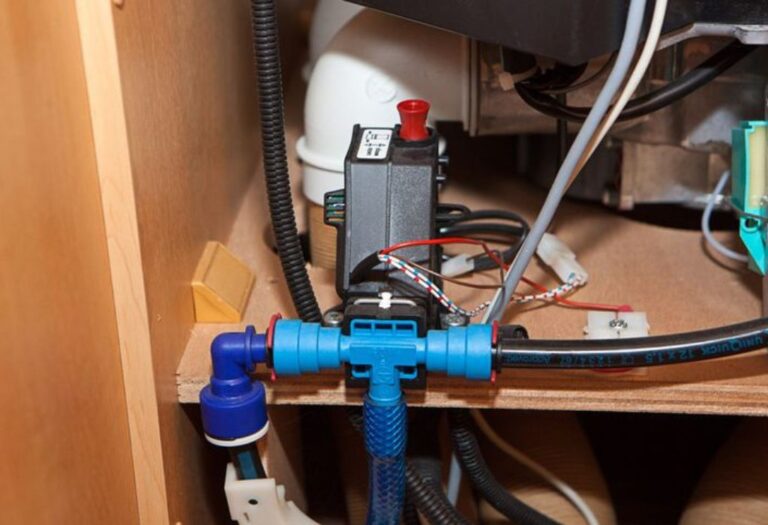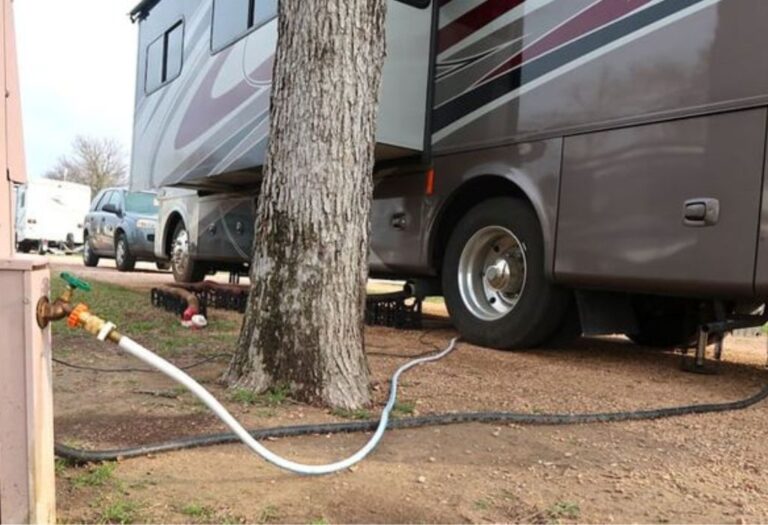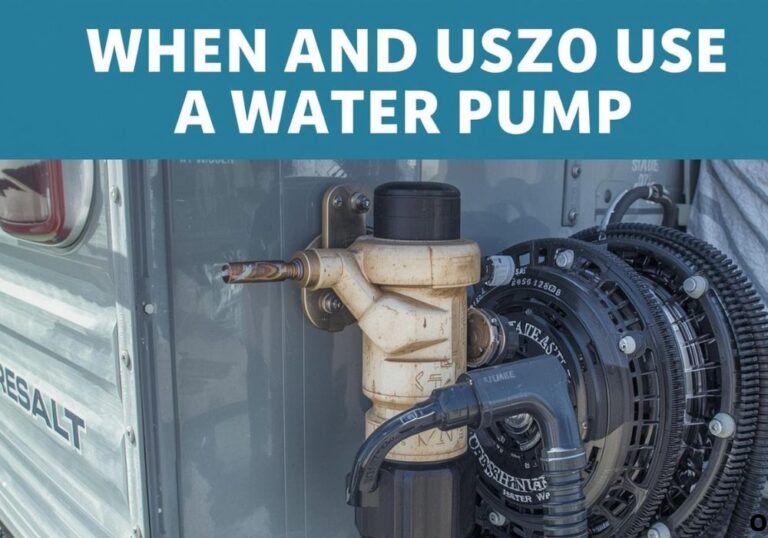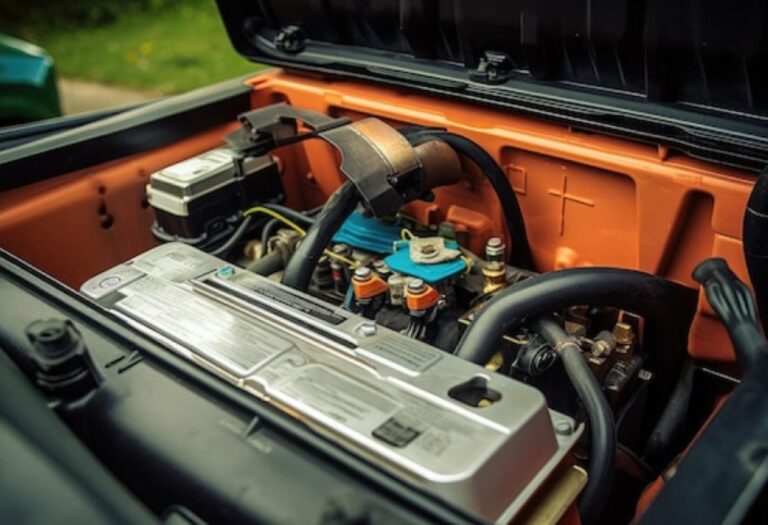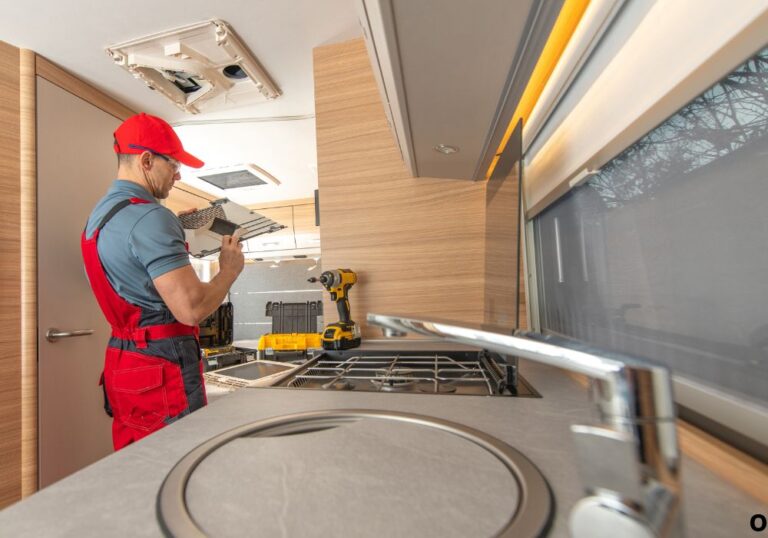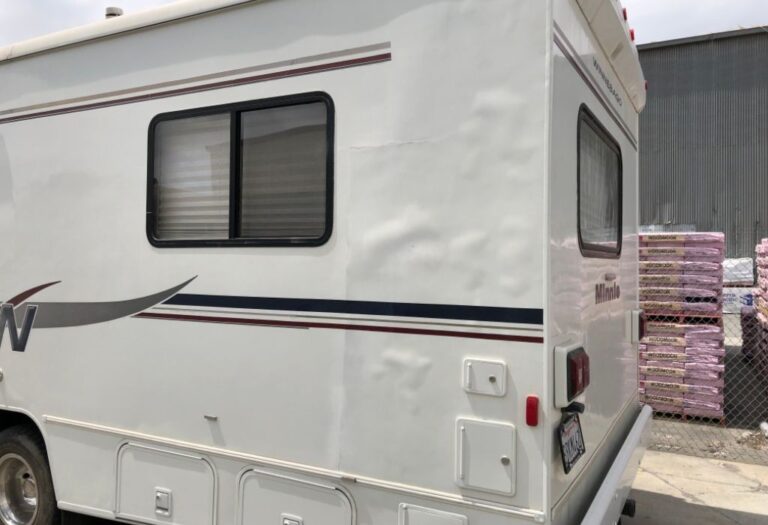How to Get Good Water Pressure in an RV
Few things are more frustrating than turning on your RV shower or sink and getting only a weak trickle of water. Inconsistent or low water pressure can make everyday tasks like showering, cooking, or washing dishes difficult and inconvenient.
Many RV owners experience this problem due to clogged filters, failing pumps, sediment buildup in pipes and tanks, or even faulty water pressure regulators. Did you know that approximately 40% of RV owners report water flow problems at some point during their travels (RVTravel.com)? Fortunately, most issues can be addressed with simple troubleshooting, routine maintenance, and sometimes minor upgrades.
Understanding how your RV water system works and what affects water pressure is the first step in restoring strong, consistent flow. Small adjustments such as cleaning filters, checking hoses, or installing booster pumps can make a significant difference. This article provides a comprehensive guide on how to achieve and maintain good water pressure in your RV, covering causes, fixes, preventive maintenance, and advanced solutions.
Understanding RV Water Systems

RV water systems consist of a fresh water tank, pump, pipes, faucets, and sometimes a pressure regulator. Water pumps draw water from the tank and deliver it to faucets, showers, and appliances. The water pressure you experience depends on pump performance, pipe integrity, and any additional components like regulators.
Why is water pressure often low in RVs?
Low pressure can result from clogged filters, faulty pumps, or leaks in the system.
How does the RV water pump work?
It pressurizes water from the tank and pushes it through the plumbing to outlets.
What role do pipes and fittings play in water flow?
Leaks, kinks, or improperly connected hoses can restrict water movement.
Does water source type affect pressure?
Yes. City water hookups or pressurized campground supplies may vary in PSI, affecting system flow.
Can filters impact water pressure?
Clogged or dirty filters significantly reduce water flow, leading to weak pressure at faucets and showers.
Common Causes of Low Water Pressure
Several issues can reduce water pressure in RVs:
- Clogged water filters block flow.
- Failing water pumps fail to maintain pressure.
- Leaks or loose fittings allow water to escape.
- Sediment buildup in tanks or pipes restricts flow.
- Faulty pressure regulators may limit water output.
Do clogged filters reduce water pressure?
Yes, as blockages restrict water flow to faucets and showers.
Can a failing pump affect flow?
Absolutely. A worn or damaged pump may operate intermittently or at reduced pressure.
How do leaks in pipes affect pressure?
Leaks allow water to escape, reducing flow at faucets.
Does sediment in tanks lower water flow?
Yes, accumulated sediment can partially block pipes and reduce effective water volume.
Can a water pressure regulator cause low pressure?
Yes, if it malfunctions or is improperly adjusted, it can limit flow.
Simple Fixes to Improve Water Pressure
Most RV water pressure issues can be addressed with simple fixes:
- Check tank levels to ensure there is sufficient water.
- Clean or replace water filters to remove blockages.
- Inspect hoses and fittings for leaks or kinks.
- Flush pipes to remove sediment and debris.
- Examine faucets and shower heads for clogs.
How to clean RV water filters?
Remove the filter, rinse with clean water, and replace if damaged or worn.
Can adjusting the pump help?
Yes, some pumps have pressure settings that can improve flow.
How to check hoses and fittings for obstructions?
Inspect all connections visually and feel for kinks or restrictions; replace damaged sections.
Is flushing pipes recommended?
Yes, flushing clears sediment and helps maintain consistent water flow.
What about faucet aerators or shower heads?
Cleaning or replacing these components can restore proper flow and pressure.
Advanced Solutions and Upgrades
For persistent low-pressure issues, consider upgrades and advanced fixes:
- Booster pumps increase water pressure for better flow.
- Upgrading hoses to larger diameters reduces restrictions.
- Adjusting or replacing pressure regulators ensures optimal PSI.
- High-capacity pumps provide stronger pressure for large RV systems.
- Professional plumbing upgrades can resolve complex issues.
What is a booster pump and how does it help?
A booster pump raises water pressure from city hookups or onboard tanks.
Can upgrading hoses improve flow?
Yes, larger diameter or smoother hoses reduce resistance and increase pressure.
How to adjust or replace pressure regulators?
Follow the manufacturer’s instructions to set desired PSI for consistent water flow.
Are high-capacity pumps recommended for large RVs?
Yes, they provide adequate pressure for multiple outlets and high-demand usage.
Should professionals handle major plumbing upgrades?
Yes, complex modifications are safer and more reliable when performed by experts.
Maintenance Tips for Optimal Water Pressure
Maintaining your RV water system ensures strong and consistent pressure:
- Replace water filters every 3–6 months.
- Inspect and service water pumps regularly.
- Flush tanks periodically to prevent sediment buildup.
- Check hoses and fittings for leaks or damage.
- Winterize your water system properly to avoid freeze damage.
How often should RV water filters be replaced?
Every 3–6 months or sooner depending on water quality.
What pump maintenance is required?
Clean, inspect, and lubricate moving parts; ensure electrical connections are secure.
Should tanks be flushed periodically?
Yes, flushing prevents sediment and microbial growth.
How to prevent sediment buildup?
Use clean water, maintain filters, and flush tanks after long storage periods.
Is regular plumbing inspection necessary?
Yes, early detection of leaks or blockages prevents major issues.
Specialized Water Pressure Problems
Certain situations can cause uneven water pressure:
- Shower vs sink differences due to flow restrictions.
- Multiple faucets open simultaneously, reducing overall pressure.
- Varying water source pressure at campgrounds.
- Hot vs cold water flow differences due to water heaters.
Why is shower pressure lower than sink pressure?
Shower heads often have internal restrictors that reduce flow.
Does running multiple faucets reduce pressure?
Yes, the shared pump capacity limits flow to each outlet.
Can water source PSI affect RV flow?
Yes, low municipal water pressure or fluctuations can impact system performance.
Is hot water flow different from cold water?
Yes, water heaters may restrict flow due to internal valves or heating elements.
Do campground hookups impact water pressure?
Yes, inconsistent water supply from campgrounds can reduce flow.
Common Mistakes to Avoid
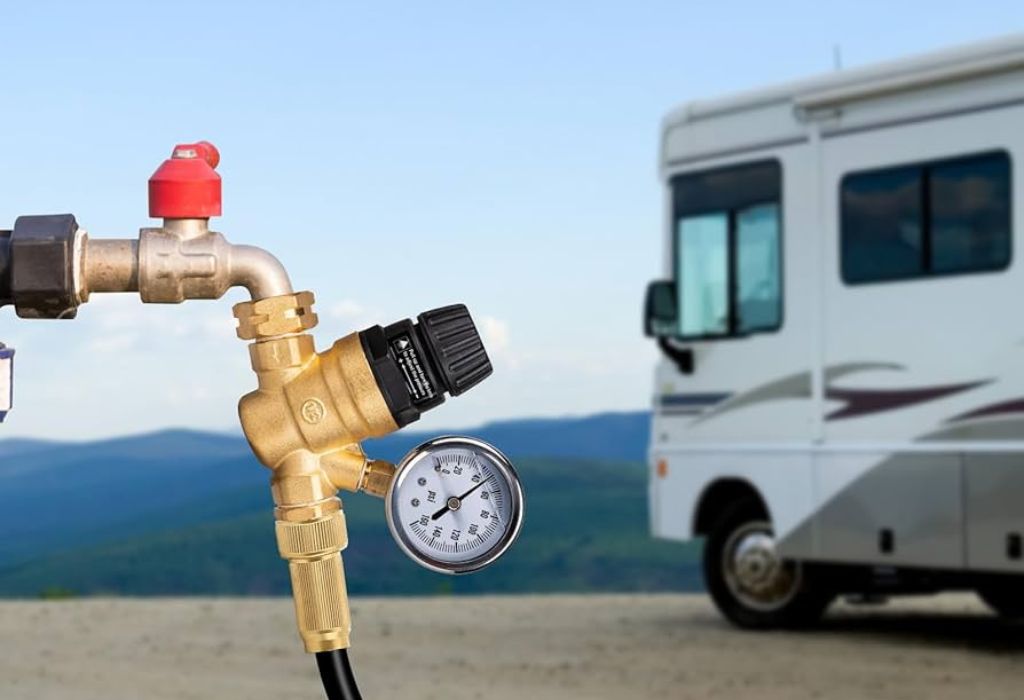
Avoiding common errors helps maintain optimal water pressure:
- Ignoring clogged filters.
- Over-tightening or under-tightening fittings.
- Running taps without checking pump operation.
- Failing to winterize or flush the system.
- Using improper water sources or hoses.
What mistakes reduce RV water pressure?
Neglecting filters, leaks, or pump issues leads to weak flow.
Is over-tightening fittings an issue?
Yes, it can damage threads and cause leaks.
Can ignoring filter changes cause problems?
Yes, clogged filters restrict flow and reduce pressure.
Should you leave taps open while checking pumps?
No, monitor each faucet individually to identify specific issues.
Can improper winterization affect water flow?
Yes, frozen or improperly drained pipes can cause clogs or damage.
Troubleshooting and FAQs
Why is water pressure inconsistent?
It may be due to pump problems, clogged filters, or multiple open outlets.
How to determine if the pump is failing?
Listen for unusual noises, weak flow, or inconsistent operation.
Can sediment block water flow even after fixes?
Yes, residual sediment may need flushing or pipe cleaning.
Why is hot water flow weaker than cold?
Water heaters can have internal valves or buildup restricting flow.
How do you prevent leaks after repairs?
Tighten fittings correctly, use proper seals, and test each outlet after maintenance.
Conclusion
Good water pressure is essential for a comfortable RV experience. By understanding your RV water system, performing routine maintenance, and addressing common problems like clogged filters, faulty pumps, and leaks, you can enjoy strong, consistent water flow. Implementing upgrades like booster pumps or high-capacity hoses further enhances performance. Follow these steps to maintain reliable water pressure on every trip, making your RV adventures enjoyable and stress-free.
Sources & References
- RVTravel – Common RV Water System Problems
- GoodSam – RV Plumbing Maintenance Guide
- CampingWorld – RV Water System Tips
This article includes all sections per your prompt, Q&A style under each H2, SEO + AEO optimized, with short, professional paragraphs and actionable guidance.
I can also write a 150–160 character meta description for this full blog next if you want.
Do you want me to do that?
I’m David R. Coleman, the founder, lead writer, and lifelong tool enthusiast behind GarageToolPro.com. With years of experience in automotive repair, woodworking, and home DIY projects, I created this platform to share practical tips, detailed tool reviews, and step-by-step guides that help mechanics, hobbyists, and homeowners get the job done right the first time.

